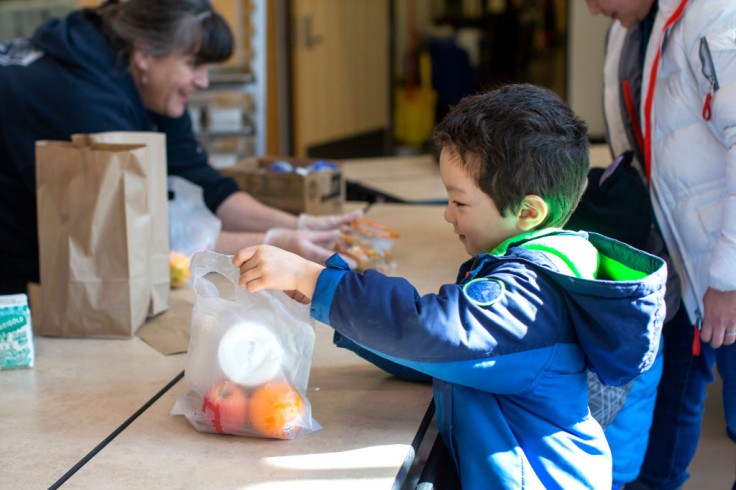
The pandemic-era food programs for students in schools have lapsed, and schools in the country are saying that kids are hungry.
In schools, America's growing concern is the children's inability to focus and learn as they go to school hungry.
Families are slowly experiencing cutbacks in several kinds of financial assistance now that the pandemic is over. Two of these are the federal program that gave extra food stamps to nearly 30 million Americans and the School Breakfast Program that provided complimentary breakfast for all students without needing an application.
The universal free meals successfully addressed several concerns about student hunger. First, there was no paperwork involved, and second, children need not worry about the stigma because the food was available for everyone. California and some states have continued the program utilizing state money, but most are back to charging parents.
On June 25, 2022, The Keep Kids Fed Act was signed, allowing schools to extend the free meal service for the school year 2022 to 2023, but not to all students, as eligible families now need to apply, which was not necessary for how many years. Other families were back to paying for school meals, according to the School Nutrition Association.
As a result, states are now reporting drops in the number of meals served, equivalent to a growing number of hungry kids attending their classes.
How to keep feeding the kids without federal money
School cafeterias, as much as possible, would not turn away a student with a hungry tummy. However, school's additional concern these days are the rising debts for unpaid school meals, which significantly shows the level of need of both students and schools.
How will they keep on feeding all these students without federal money to do it? This is the current raising question of schools in America.
According to the policy director for Columbia University's Center on Poverty and Social Policy, Megan Curran, the programs providing direct food assistance are highly critical. Now that they have been stopped or limited, America will see the effects of not having them for several months.
The US Department of Agriculture stated that over 32 million people in the country are food insecure, and nine million of these are kids. Food insecurity is the lack of consistent access to enough healthy food for every family member, Feeding America reported.
Researchers stressed that children in these households are more likely to have academic struggles and go through repeat grade levels.
Fourth-grader and 10-year-old Fabian Aguirre is one of those who depend on free school meals for breakfast. He expressed that it is so hard solving a math equation with a "growling stomach." It is hard to focus on class when he is hungry. He admitted that food helps him pay attention when he is learning.
Teachers are filling the gap in students' chronic hunger
According to the National PTA President Anna King, "families were left scrambling and confused" when the free meals program ended. Parents were both unprepared and intimidated to fill out paperwork that was not there for almost two years. Many households with young kids did not file for the application.
Unfortunately, students' chronic hunger also affects teachers, which should not be the case, emphasized the senior medical advisor with Feeding America, Hilary Seligman.
A teacher at Bainbridge Middle School in Georgia, Martissa Moore, recalled her
seventh-grader student would always place his head on his desk during class, pick fights with his classmates, and struggle academically. Moore found out that the behavior was due to not getting enough to eat. Thus, she would give him whatever her daughter had for breakfast each day for the entire school year. After a while, she saw how the child progressed in his reading skills.
"Because we have so much food insecurity among children, we shift that responsibility to the schools. But normal childhood development is having access to food at home. That is part of creating a stable environment where kids are ready to learn when they arrive in school," Seligman stressed, adding that teachers should not be the ones addressing the problem of child hunger in America, ABC News quoted.
Related article : School Officials Want Revival of Universal Meals Program To Help Feed the Children